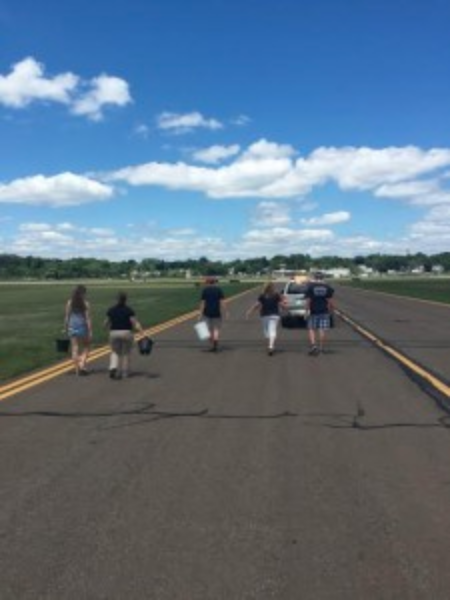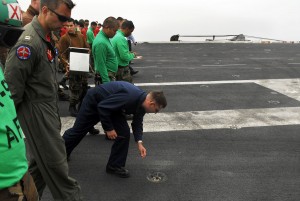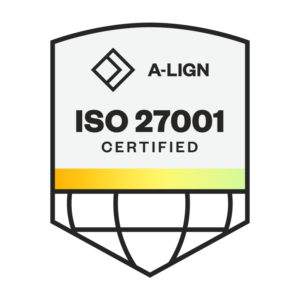On Wednesday, June 24, 2015, eight Veoci team members visited Tweed New Haven Regional Airport for their annual “FOD Walk”. Under clear blue summer skies, we joined a group of roughly 20 other volunteers and Tweed employees to help in this inspection by walking the closed-off runway, buckets in hand, collecting and removing any unwanted debris from the path of the airplanes. A spectacularly sunny and breezy day, it was a wonderful opportunity to meet others and spend the afternoon assisting the airport employees in an important and potentially life-saving exercise.
However, the walk is founded on the dire reality that FOD has the potential, especially during takeoff and landing, to seriously damage an aircraft and injure or kill passengers and personnel on the ground. FOD, Foreign Object Debris, can be any object in an inappropriate location at an airport. Over the years, the aviation industry has seen damage from a wide range of materials such as loose hardware, pavement fragments, catering supplies, building materials, rocks, sand, luggage and wildlife. Of most concern are debris that cut through airplane tires or damage the engine when ingested. On the ground, the damage is significantly increased when these objects are propelled at high speed by a jet blast. A Boeing study estimates that the resulting damage costs the industry $4 billion per year.

A year-long French study found that over 60% of the FOD collected was metal followed by 18% of items made of rubber. The study lists the following items that are typically FOD:
- aircraft and engine fasteners (nuts, bolts, washers, safety wire, etc.)
- aircraft parts (fuel caps, landing gear fragments, oil sticks, metal sheets, trapdoors, and tire fragments)
- mechanics’ tools
- catering supplies
- flight line items (nails, personnel badges, pens, pencils, luggage tags, soda cans, etc.)
- apron items (paper and plastic debris from catering and freight pallets, luggage parts, and debris from ramp equipment)
- runway and taxiway materials (concrete and asphalt chunks, rubber joint materials, and paint chips)
- construction debris (pieces of wood, stones, fasteners and miscellaneous metal objects)
- plastic and/or polyethylene materials
- natural materials (plant fragments, wildlife and volcanic ash)
- contaminants from winter conditions (snow, ice)
An FAA
provides additional guidance.
Tweed Airport, a long-time client and friend of Veoci invites guests every year to help in the process of searching for debris and provides volunteers with a cookout and music afterward. Our walk was an integral part of the prevention program with two dozen volunteers showing up and key airport personnel joining in. The message was clear to everyone involved – let’s get rid of FOD. Steps such as this exercise are essential to developing a culture of safety at an airport.
“Most FOD damage is preventable,” said Kurt Kaminski, Lead Airport Operations Supervisor at Tweed and one of the main organizers of the annual event. “This is why Tweed New Haven puts fun in a summer FOD walk and picnic. With the help of a supportive airport community of tenants, employees, aviation enthusiasts as well as beautiful weather, we can foster a fun approach to keeping a safe airport environment.”








